Philosophy from the Black Radical Tradition
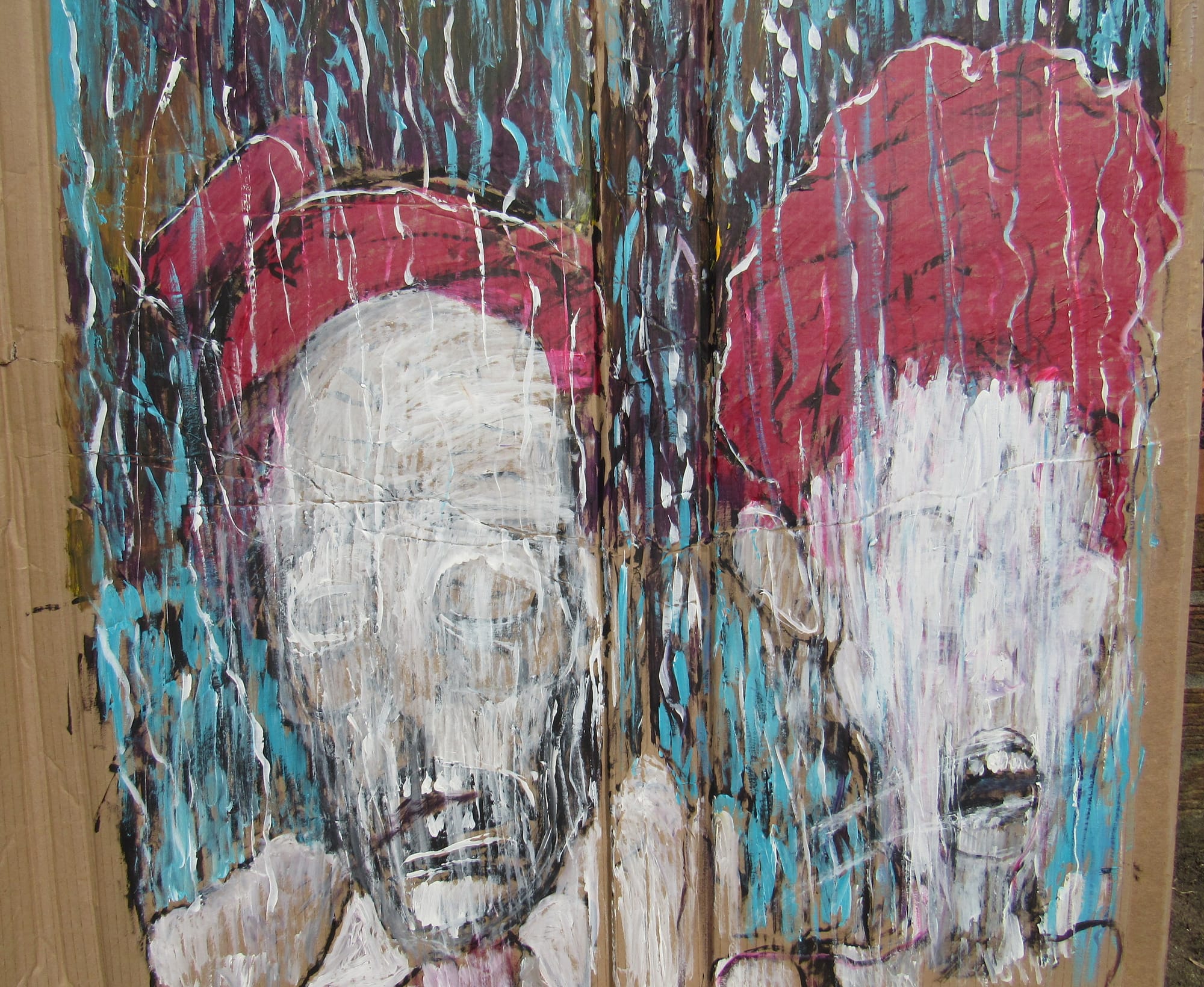
Interview by Richard Marshall.
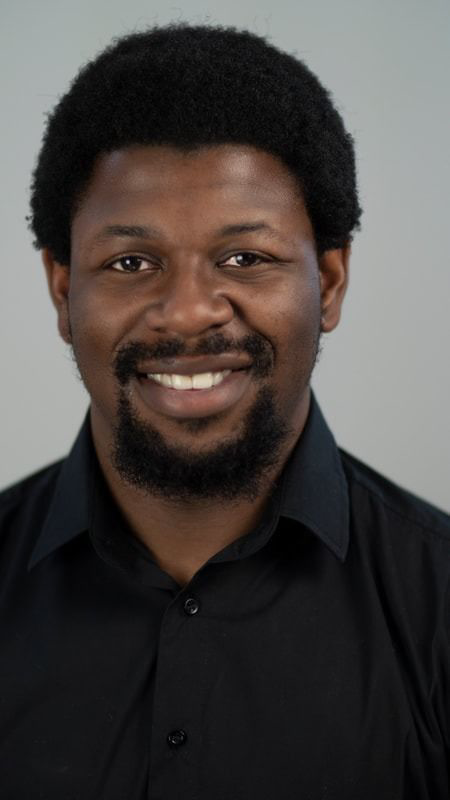
'I think the better way to look at the world is as structured around the “stuff we’re all going along with” – what philosopher of language Robert Stalnaker talks about as “public information” or the “common ground”. There’s an old fairy tale that helps us keep track of the distinction between “what we’re treating as true” and a rosier thing like “mutual belief”: the story of the emperor’s new clothes. As the story goes, one day some of the emperor’s subjects brought him an empty coat hangar and told him that it was a beautiful garment, visible only to the qualified and competent. For nearly a whole day, the emperor walked around naked and all the passing townspeople played along, and for good reason (seriously, have you seen medieval torture devices? Would you tell a potentially vindictive dude with absolute power that his ass was out?)'
'Curry isn’t making the phenomenon up - I think there’s a real cultural phenomenon in academia and elsewhere that dismisses or caricatures marginalized populations, Black men in the US being one set among these, that is worth criticizing. Relatedly, I think there’s a way of thinking about the world that consists of counting dimensions of oppression and forcing them into awkward, rigid, predetermined hierarchies – it’s out there in the world, on social media, and again, the academy isn’t an exception here. I don’t think this way of looking at the world gets anybody right (and most days I’m not sure getting things right is anywhere on the to-do list). '
'Obviously there are a variety of approaches and areas of focus in political philosophy – I don’t want to paint with too broad a brush. That said, there are two, mutually supporting tendencies in political philosophy that get something of an explicit articulation in Rawls’ thought. The first, “two-tiered political theory”, is the separation of political analysis into two levels of analysis, in our case domestic (state level) and global. The second, I called “statism” but might be better described as a sort of “state-centricity” or “state-focus” – the idea that what’s going on with the state is the main determinant of individual people’s lives, and the main subject of justice. The general Rawlsian approach, given these commitments, is then to figure out how justice works in each state’s domain and then give a separate account of how the states are to relate to each other. '
'If you’re formally colonized, as much of Africa was until about the release date of Rocky II? If you’re formally independent but the United States and the House of Saud has the leverage to substantially constrain your possible monetary policies, the World Bank and IMF has the leverage to substantially constrain your possible fiscal policies, and a handful of multinational corporations has the leverage to substantially determine your public health outcomes and employment rates, in what sense exactly is your state’s parliament and “public political culture” really the main determinant of the rights, duties, and advantages of social “cooperation”?'
'We are teetering on the verge of a very clearly genocidal scenario - that’s the “hazard” that I choose to concern myself with first and foremost. From my perspective, we are already at the “by any means necessary” stage of this problem – and it follows fairly straightforwardly from any political perspective on which avoiding the destruction of wide swaths of the Global South (including perhaps the entirety of Africa, socially and politically speaking) is a primary intolerable consequence. Of course, if avoiding that is only a secondary priority, then I guess we can have a conversation about that.'
Olufemi Taiwo's theoretical work draws liberally from German transcendental philosophy, contemporary philosophy of language, contemporary social science, histories of activism and activist thinkers, and the Black radical tradition. Here he discusses Stanley on propaganda, superpredators, Tommy J Curry on academia's negative black male stereotypes, global politics, Rawls on constructivism and statism, disagrements with environmentalists regarding carbon capture, climate colonialism, reparations and distributed justice.
3:16: What made you become a philosopher?
Olufemi Taiwo: I think that I am motivated by the same fundamental questions about the world that I had as a kid. Growing up in Ohio, I was surrounded on one side by a highly educated Nigerian diaspora community full of doctors, engineers, and by my disproportionately white and middle class neighbors and classmates. It came as a pretty big surprise to me that the Black ones in that comparison were the ones associated with low education and poverty. It was a deeper and more important surprise that the world seemed to bear out this association, since poverty and poor infrastructure was (and still is) widespread in Nigeria and less so over here. No one seemed to know or care why this was, since the going etiquette was not to mention it at all, unless someone was trying to get their kid to finish their vegetables. People would occasionally try to justify it, exploit it, survive it - but no one was trying to really explain it. Well, I found one book as a kid that did – The Bell Curve, which was the first academic (let’s say) book I ever read in its entirety – but it was less than satisfying or convincing.
So I wondered, unanswered: why is Nigeria poor? Why is the US rich? Are these separate questions, or related ones? What’s to be done about either, or both?
From there, it was just a matter of coming to view that question as a philosophical one – of moving from framing them “why is Nigeria poor?” to something more like “what is it for a country to be ‘poor’ (particularly one with as large an economy and pool of resources as Nigeria’s!), and what political problems does this constitute and contribute to?” I would come to understand the things I understand now about class and immigration law, things that mark both the diasporic Nigerian community and the Midwestern suburb as I knew them as less than statistically representative of the larger communities. I would come to understand why these things aren’t talked about openly, and what the stakes of doing so are. The road took some detours – I started off college majoring in economics and political science, which did help tremendously, but I think political philosophy was a natural fit from the start.
3:16: One thing you’ve written about is propaganda. You commented that the Jason Stanley book used ‘flawed ideologies’ to explain how propaganda works before going on to propose a different answer to those of that book. So firstly, what were the flawed ideologies I play as you saw it in that book? As an alternative you argue that flawed social structures can exert propagandistic effects. This results in a ‘practice first’ approach. What do you mean by this and how is this a better way of looking at how propaganda work?
OT: One example Stanley and I both spend time thinking about is the myth of the “superpredator”. In the mid 90s, political scientist John DiIulio argued that major city streets were plagued with this new kind of remorseless, inhuman killer, which seemed to tap into the anxieties of the dominant culture of the day (just watch the music video for 1995 classic hit Gangsta’s Paradise).
Problem was, this was bullshit. Sure, people who were socialized around the high levels of violence that followed the introduction of crack into marginalized and disadvantaged communities are going to express themselves differently than people who weren’t, when it comes to expressing emotion or anything else. But this isn’t evidence of inhumanity, it’s evidence of humanity. If you find somebody whose behavior doesn’t respond to such a dramatically different incentive structure, then that’s the person whose humanity we should ask questions about.
Some people think that phenomena like racism are, at bottom, belief structures that are built on this kind of mistake. According to this school of thought, racism and/or race itself is a “flawed ideology” or a problematic system of beliefs, attitudes, or other individual and collective psychological phenomena – more or less, what you get if you stack too many “superpredator” type myths on top of each other. As I just suggested, I think that this wider framework about beliefs and oppressive social structures get more or less just applied to the case of propaganda: if racism is a flawed belief structure, then racist propaganda is perhaps the exploitation of existing flaws in the belief structure, or the introduction of a novel flaw in reasoning or our psychological orientation to each other and to society. Call this the ‘ideology’ approach.
Team ideology has got something going for it. Groups of people quite often do develop justifications for the way their society is, and their positions and roles in helping to make society, and sometimes hold onto them quite tightly. It’s not an accident. But I think, in the main, this gets things quite wrong: what people believe (either individually or collectively) and what they do are two very different things. I think that, if you want to explain social structure, you need to put what people do in the foreground and what they think in the background. That’s ‘practice first’ as a theoretical orientation. If team ‘practice first’ is right, then team ‘ideology’ is liable to get things backwards or worse – they’ll try to explain the cause (social structure).
I think the better way to look at the world is as structured around the “stuff we’re all going along with” – what philosopher of language Robert Stalnaker talks about as “public information” or the “common ground”. There’s an old fairy tale that helps us keep track of the distinction between “what we’re treating as true” and a rosier thing like “mutual belief”: the story of the emperor’s new clothes. As the story goes, one day some of the emperor’s subjects brought him an empty coat hangar and told him that it was a beautiful garment, visible only to the qualified and competent. For nearly a whole day, the emperor walked around naked and all the passing townspeople played along, and for good reason (seriously, have you seen medieval torture devices? Would you tell a potentially vindictive dude with absolute power that his ass was out?)
The moral of the story is that, yes, sometimes we’re all treating something as if it’s true because we really think it is true. But this is a special case of coordination. There are plenty of other reasons for us all to act as if something is true: convention, force of habit, and very importantly for the study of politics, what we think will happen to us if we don’t. Whatever explains the fact that we’re treating something as true, the things we treat as true all going along with is what structures the political world – it’s what explains the behavior of the guy who sees the king in the hallway, and the woman who bumps into him on the street corner. What we go along with, literally – like, metaphysically- explains why a ten dollar bill in fact (whether you “believe” in fiat money or not) will get you ten dollars worth of stuff at stores.
I don’t think it matters so much that DiIulio thought whole swaths of kids were superpredators, or even why he did. Some powerful people went along with that because they believed the same thing, sure. Others went along with it because looking tough on crime meant election or re-election, and their constituents wanted kids locked up. Others went along with it to enrich themselves or the jurisdiction that provided the base of their political powers. If you’re looking at DiIulio’s stated beliefs, no matter how sophisticated the tools you use are, you’re just not really looking at the kind of thing that stands a chance of explaining that sort of social reality. What matters isn’t so much that people thought it was true that these youths were “superpredators”, but that they legislated, policed, and incarcerated as though it were true.
From a practice first perspective, we might deemphasize the fact that, in 1995, a political scientist referred to teenagers as “superpredators”. Instead we might emphasize that, in 1994, Congress passed over $30.2 billion dollars worth of legislation (backed by then-President Clinton) to hire over 100,000 more police officers, bribed states with money expressly marked for prison constructionin exchange for changing state laws to force the incarcerated to serve at least 85% of their time in a cage (30 of which did), and changing federal statutes to allow children as young as 13 to be tried as adults. All of this took place, mind you, before DiIulio gave youths the label of “superpredator”.
I’m not sure we’re going to get anywhere studying what people believe about other races of people. At most, it’s a roundabout way to the better target: how people are treated, and what social incentive structures support this treatment and block alternatives.
3:16: This is of course relevant as you look at philosophy, gender and race. In a piece about Tommy J Curry’s book ‘The Man-Not’ which looks at narratives around black males in academia, you agree that dominant narratives are too negative and need to be challenged but disagree in part with Curry’s argument that theorists using intersectionality are in part to blame for these negative narratives. So first, could you sketch for us what Curry is saying about this theory and the why he thinks it responsible? So how do you assess his claims?
OT: Curry’s book has some direct claims about the world and also has some claims about the world of theorists. About the world: he claims that Black men in the United States are not advantaged by their maleness, and in fact that Black men in the US are actually disadvantaged because of their maleness, not in spite of it. He borrows from scholars like Jim Sidinias and Felicia Pratto (the authors of Social Dominance) to argue that the inter-group dynamics of race in the US bear decisively on how maleness experienced by men of color, especially Black men: outgroup men as such are disproportionately targeted for at least some kinds of overt and structural violence, relative to ingroup people of any gender and also relative to outgroup women. The numbers bear this out in at least some domains: most dramatically with respect to policing and incarceration, but also in housing and labor markets.
Curry claims that (even Black!) theorists have missed these data and misgeneralized about Black males because they have largely bought into popular “flawed ideologies” about Black males that portray them as dangerous and violent and render their vulnerability to harm unimportant or even inconceivable. The “superpredator” myth shows up here, of course. The gist is that Black males, even in supposedly woke circles, are often cast in racially misandrist lights, perhaps due to some combination of false consciousness and cynical Black elite convergences of interest with white academics, especially feminists.
I think what Curry says about the world is, at the very least, plausible. Though, I'll say that it’s not always clear who or what the intended contrast class is to make Black men’s position out as advantaged or disadvantaged (relative to Black women? non black men of color? White men?).
As for what he says about theorists and theories, well, things are complicated. Curry isn’t making the phenomenon up - I think there’s a real cultural phenomenon in academia and elsewhere that dismisses or caricatures marginalized populations, Black men in the US being one set among these, that is worth criticizing. Relatedly, I think there’s a way of thinking about the world that consists of counting dimensions of oppression and forcing them into awkward, rigid, predetermined hierarchies – it’s out there in the world, on social media, and again, the academy isn’t an exception here. I don’t think this way of looking at the world gets anybody right (and most days I’m not sure getting things right is anywhere on the to-do list).
It’s just that these mistakes don’t seem to me to have much inherently to do with intersectionality. Intersectionality is often appealed to in these discussions or by the offenders Curry targets, but it’s not clear what work the concept itself is doing. Intersectionality has been called a lot of things: a theory, a “theoretical orientation”, a “framework” – also “hard to define”. No worries on that last one – I’m a philosopher after all, and if my kind can have millennia long conversations about whether tables exist and whether or not everything is actually made of water then I don’t see why we can’t spend a few decades wondering how identity categories and social structures relate to each other. But it’s not clear how the orientation in the direction of holism - seeing aspects of identity or oppression as co-constituting, and seeing that fact as practically relevant to theorizing - could crowd out claims like Curry’s or rule in the sort of racial misandry he rightly criticizes.
Moreover: Curry’s book and arguments seem to me, I think rather straightforwardly, an instance of intersectional theorizing. Like Crenshaw, he’s refusing to separate his characterization of how gender functions to advantage or disadvantage outside of an engagement with how its effect on people’s experiences interacts with their race and class. This is true whether or not his conclusions are correct, and it’s true whether or not his conclusions are popular with the groups of people that are strongly associated with the idea. I generally resist associating ideas too closely with the particular uses their most famous users made of them – it strikes me as functionally giving ownership of ideas to people, just because they are socially presumed to have it. Ideas don’t belong to anyone – or, at least, this isn’t how. This fact is one of the aspects of philosophy I find most liberating, in every sense of the word.
3:16: You’re interested in political philosophy and find the dominant approach to globalisation and global politics problematic. So first, what is the dominant approach to global politics that you disagree with? You see Rawls as being particularly important in this approach – in particular the Rawlsean account of uniting the three commitments of two-tiered political theory, constructivism and statism. So what alternative do you propose and how does your approach better understand global politics and in particular global justice?
OT: Obviously there are a variety of approaches and areas of focus in political philosophy – I don’t want to paint with too broad a brush. That said, there are two, mutually supporting tendencies in political philosophy that get something of an explicit articulation in Rawls’ thought. The first, “two-tiered political theory”, is the separation of political analysis into two levels of analysis, in our case domestic (state level) and global. The second, I called “statism” but might be better described as a sort of “state-centricity” or “state-focus” – the idea that what’s going on with the state is the main determinant of individual people’s lives, and the main subject of justice. The general Rawlsian approach, given these commitments, is then to figure out how justice works in each state’s domain and then give a separate account of how the states are to relate to each other.
One reason for pause, in terms of the actual history of the world, is that this procedure is the exact reverse of the actual history of the proliferation of the modern state system as we now know it. How it actually happened: Europe was a hodgepodge of different forms of social organization: local empires, kingdoms, scattered feudal territories, and vassal states – same as most other regions of the world. Eventually many of these consolidated. They worked out a understanding of internal “sovereignty” involving non-interference in others’ domestic affairs (though this was, of course, regularly if not systematically violated and undermined as they competed with each other) Some of these became global empires.
If we were starting from the point of view of the Iroquois Confederacy or the Comanche Empire, it would seem pretty obvious that the modern state system didn’t come from a Constitutional convention or anything resembling a Rawlsian original position at any level of abstraction: it came the same way and on the same day that the Bibles and smallpox arrived. From the Asante’s or the Yoruba kingdoms’ or Dahomey's perspective, you might say that the state system came the day weird foreigners first offered the local elites guns for the children of their neighbors. Or we could think about the Indian subcontinent, where the “modern state” came on a piece of paper held by a corporation, the British East India Company, and their gargantuan, region-dominating mercenary army. In short, in the vast majority of the entirety of the world, the global connections that became the “state system” came first, and states came afterwards.
Maybe that’s just rhetoric, though. Rawls certainly isn’t trying to give a history lesson in A Theory of Justice. But it’s hard to see how, even on theoretical grounds, we could justify the primacy and priority given to state-level politics. This is because, as I argue in a very directly named paper: “States Are Not Basic Structures”. Basic structures are the institutions that determine the distribution of fundamental rights, duties, and advantages from social cooperation. I think Rawls is onto something here. I buy that the division of benefits and burdens from social cooperation is indeed a fundamental thing that political justice is concerned with. Thus, if there is something like a “basic structure”, that would be a good primary target for theorizing about justice – and, more importantly, a good primary target for political intervention for those interested in creating justice. This basic structure is, philosophically speaking, the actual target of domestic justice. It is because the state and associated institutions are taken to be more or less equivalent to the basic structure that domestic justice is taken to hold primary importance over global justice and why it is so heavily focused on state institutions.
But Rawls assumes a causally “closed society” at the beginning of A Theory of Justice– that is, the conditions under which the state and the basic structure would have the same borders. He literally builds these assumptions into the working premises of the magnum opus, and by the time we’ve gotten enough of the theory to ask how a theory built on these assumptions relate to the world we’ve spent a thousand pages reading about indifference curves or whatever and no one’s got the energy left to wonder if this even succeeds as an approximation of the real world.
I can understand thinking that domestic policy and institutions are the main determinants of the division of rights, duties, and advantages if you live in a strong, well developed state like, say, the United States. I don’t think the Rawlsian description succeeds even here, but at least it’s got a shot. But what Rawls actually needs is that states as such, categorically play this role, and so it’s not enough just to show one cherrypicked example. Show of hands: who thinks that the local state is the main distributor of rights, duties, and advantages in, say, aid and NGO heavy states like Burundi? Say, is ISIS a state (I guess it’s in the name)? Was the Taliban? Is Boko Haram?
If you’re formally colonized, as much of Africa was until about the release date of Rocky II, did your borders pick out the borders of a "basic structure"? If you’re formally independent but the United States and the House of Saud has the leverage to substantially constrain your possible monetary policies, the World Bank and IMF has the leverage to substantially constrain your possible fiscal policies, and a handful of multinational corporations has the leverage to substantially determine your public health outcomes and employment rates, in what sense exactly is your state’s parliament and “public political culture” really the main determinant of the rights, duties, and advantages of social “cooperation”?
Maybe states are close enough to being basic structures, I guess. But also maybe not. I leave it to the defenders of state centric theories to explain why we should give primacy to domestic justice – particularly those who, like myself, hail from the countries that acquired the wealth and resultant power over their affairs and everyone else’s from the centuries of colonial domination that produced global politics as we know it.
3:16: Climate change is one big phenomenon that is going to have a huge impact on furthering inequalities and injustice. You are interested in looking at this and argue, controversially, that considerations of global inequality make capturing carbon to fight climate change is a good thing. Many fellow environmentalists disagree with you. So first, what are the pressing issues around global warming that you think need to be considered in any bundle of environmental policies? Why then are you disagreeing with those environmentalists who oppose carbon capture?
OT: I think there was a plausible argument, thirty, twenty, perhaps as recently as ten years ago, that there was a “moral hazard” to promotion of any solutions other than stopping the problem at its source: greenhouse gas emissions. By the best estimates I’m aware of, the amount of greenhouse gases already emitted would be enough to trigger some degree of climate change. According to the IPCC, every identified pathway that limits warming to 1.5C or lower involves some measure of carbon removal or geoengineering at the scale of gigatons per year. That is: whoever or whatever is to blame for putting us in this position, carbon removal or geoengineering are now necessary by the numbers. The paths from here that are compatible with, say, the continued *bare existence* of many Global South nations involve pairing dramatic cuts to emissions with dramatic employment of carbon removal or geoengineering. Neither, by itself, is likely to work – that’s as close to an answer to the folks worrying about “moral hazards” as I can muster. But, if you ask me, any “controversy” about carbon removal belongs in the same bin as climate denial: politically and/or scientifically unserious, not to mention dangerous.
We’re, of course, not on track policy wise for zero or low emissions at all, and the likeliest outcomes at our current policy trajectory are anywhere from 4 to 6 degrees of global warming. But neither the distribution of temperature rise nor of climate impacts is uniform, and many Global South nations can expect to be hit first and worst, despite having contributed the least to the crisis.
While we’re talking about the environment, we should also take note of the policy environment in the Global North countries, many of which are in relatively advantaged financial and geographical positions to weather the climate crisis. The US and many EU nations have swung sharply rightward in recent years, despite the fact that 85% of the world’s migrants fled to other countries in the “developing world”. Following violence in South Sudan at the end of 2016, more refugees fled to Uganda per day than had fled to the entirety of Europe over the entire year. Many of these people, are, of course, Black and brown – you know, the type of people who are routinely invited to go back to where they came from.
What happens at 4 degrees, the low end of the current trajectory, when the physical environment and the political one meet head on? When, say, the entire African continent becomes uninhabitable?
We are teetering on the verge of a very clearly genocidal scenario - that’s the “hazard” that I choose to concern myself with first and foremost. From my perspective, we are already at the “by any means necessary” stage of this problem – and it follows fairly straightforwardly from any political perspective on which avoiding the destruction of wide swaths of the Global South (including perhaps the entirety of Africa, socially and politically speaking) is a primary intolerable consequence. Of course, if avoiding that is only a secondary priority, then I guess we can have a conversation about that.
3:16: You’ve argued that a New Green Deal could exacerbate what Doreen Martinez calls ‘climate colonialism’. What does this term identify and why do you think environmental policies generally are a continuation of colonialist policies from the past?
OT: I think environmental policies should be judged on a case by case basis. The important thing to keep in mind with any kind of policy is that policies neither are implemented in a vacuum nor contribute to one: they are made possible by existing power structures and are often in a position to help create new ones or check abuses of old ones. Thinking about the larger patterns of power exploited by and resulting from politics acts, especially large scale ones, just strikes me as a regular part of political deliberation and reasoning.
Colonialism, as Amilcar Cabral explains it, is a social structure that results in the “domination of the historical process” of colonized people. In plain terms, the question is: who really explains what happens to a group of people? I think about these questions in terms of social structures, which I think of as systems of interaction. I also try to answer these questions at a world scale, because that’s the scale of economic and other political systems for the past few centuries.
On the domination end of the spectrum of social coordination, you have sort of fascist, strong man imperialists paired with similarly broad forms of unfreedom like chattel slavery and gunboat diplomacy. The enslaved in particular are under the broadest possible conditions of control by those empowered to own them under such a system, the kind that social structures usually only give people over physical objects. On the free end of social coordination, you have collaborative forms of social structure characterized by thorough economic and political democracy.
And then you have the murky waters in between these poles, which is where climate colonialism will likely start out. During the wave of African struggle against colonialism, Ghana’s first Prime Minister, Kwame Nkrumah, worried that newly independent nations would fall prey to “neocolonialism”: that they would form nominally independent states whose policies were functionally constrained if not controlled by outside interests, especially the interests of more powerful nations’ governments and conspiring corporations.
Climate change threatens to lead to climate colonialism in three ways. First: the imperative to respond is a colonialist imposition in and of itself in Nkrumah’s sense, given that the challenges posed by rising temperatures are disproportionately caused by the emissions of colonizer nations like the US and its effects will constrain or control the governing possibilities of the Global South (or Third World or whatever we’re saying these days). Secondly, the likely consequences will reverse whatever gains have been made since independence and cement colonial hierarchies of power: many Global South nations are positioned to be hurt first and worst by climate impacts and have worse infrastructure to prepare effective responses to climate crises. Lastly, the character of global climate justice efforts might themselves feed into climate colonialism. Powerful countries, corporations, and non-state actors may exploit the less powerful to secure their own resources and populations.
3:16: What’s the alternative that you would argue for? Linked with these political themes is your work on reparations. You argue for a view called the constructive view, which is rooted in distributive justice. So first, is there a long history of reparations that feed in to current debates? What’s distributive justice? How does the constructive view work and why don’t you totally defend it? What else is needed?
OT: The best alternative to climate colonialism is a reparatory approach to climate justice. I think of reparations, in this context, as the ethics of transition from the unjust world to the just world.
There is a global economic system, capitalism, and a global formal political system, the state system. In the global state system, each country has at least nominal sovereignty over the part of the world within its borders. But both the actual ability of each country’s government to control and affect what goes on in its borders and the ability of an individual or community to determine the course of their own lives are based on the actual state of things, not the words we use to describe it. That means the formal arrangements between states, “informal” politics and formal politics outside the state apparatus, and of course what’s happening economically at all the relevant scales. It matters what other countries, corporations, and organized non-state actors are up to; it matters what economic, military, political, and other forms of leverage that you have to affect what they are or aren’t up to, it matters what the other people in your community and neighboring communities are up to. Converting nominal control over your affairs to actual control of your affairs - whether we’re talking about the people who run a country, individual communities, or individual people - requires more than a flag and more than citizenship and voting in elections. It also requires, broadly speaking, resources.
That’s what distributive justice is about: the justice of how the benefits and burdens of social cooperation get divvied up. Now, weirdly enough, the resources produced during centuries of colonization disproportionately ended up under the control of colonizer and allied states. As a result of this, political power is likewise skewed in the direction of imperial states and the people and peoples connected with them.
I don’t explain all of this in the draft you read because, as I discovered while writing it, it’s a lot – it’s ballooned into a whole book, which I’m working on now. It’s called Reconsidering Reparations, and I hope it does justice to these ideas.
3:16: And finally, for the readers here at 3:16, are there 5 books you could recommend that will take us further into your philosophical world?
OT:
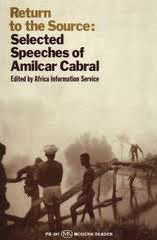
Amilcar Cabral “Return to the Source”
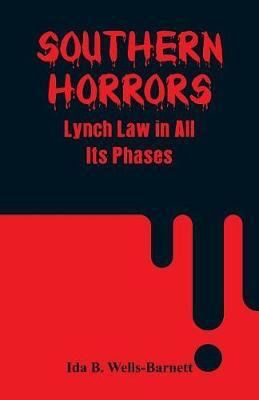
Ida B. Wells “Southern Horrors”
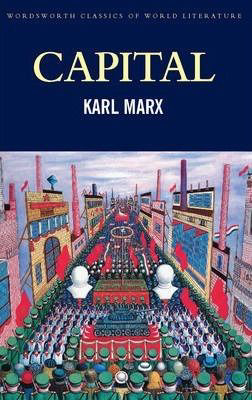
Karl Marx “Capital Vol. 1”
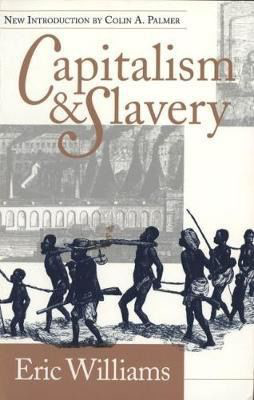
Eric Williams “Capitalism and Slavery”
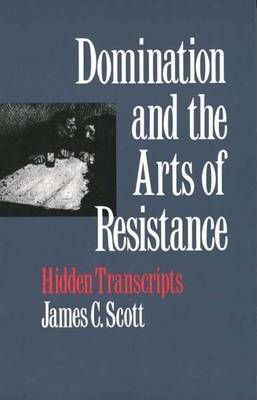
James C. Scott “Domination and the Arts of Resistance”
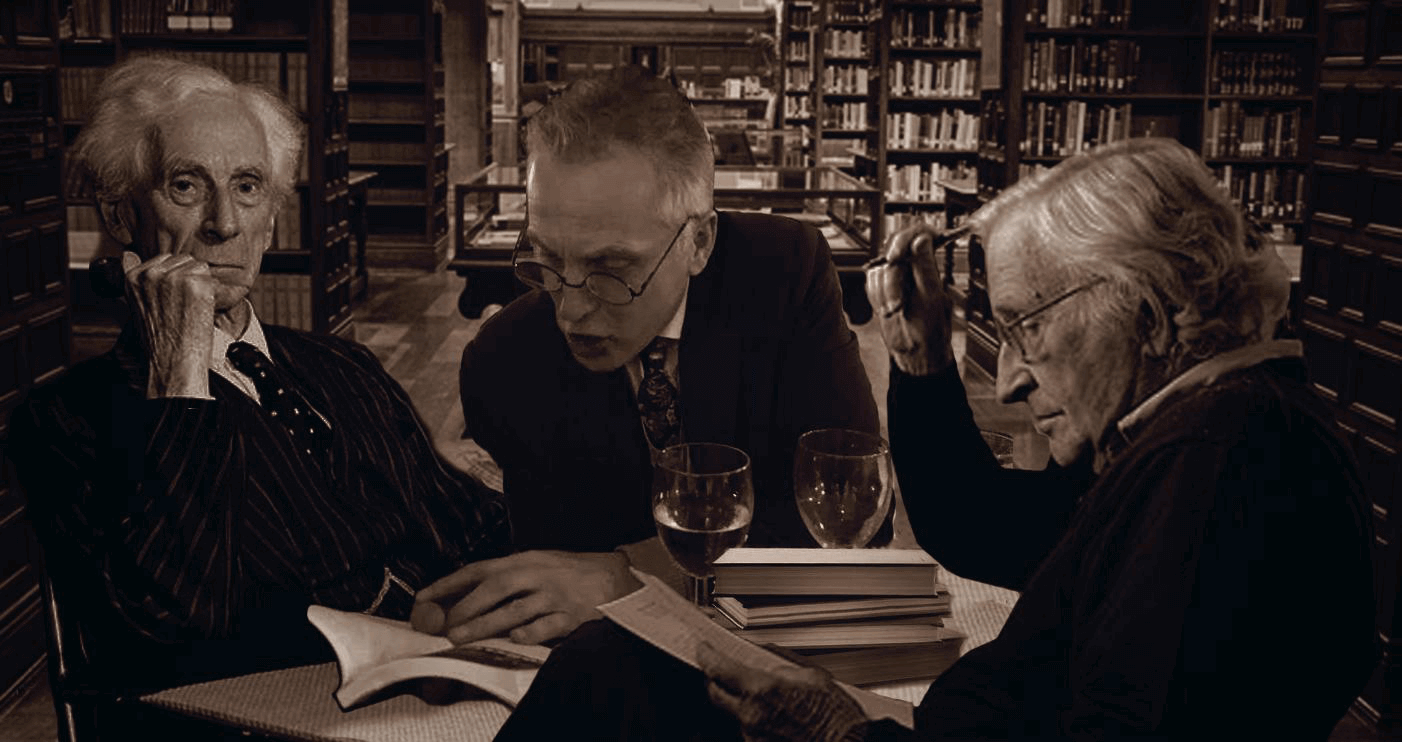
ABOUT THE INTERVIEWER
Richard Marshall is biding his time.
Buy his new book here or his first book here to keep him biding!